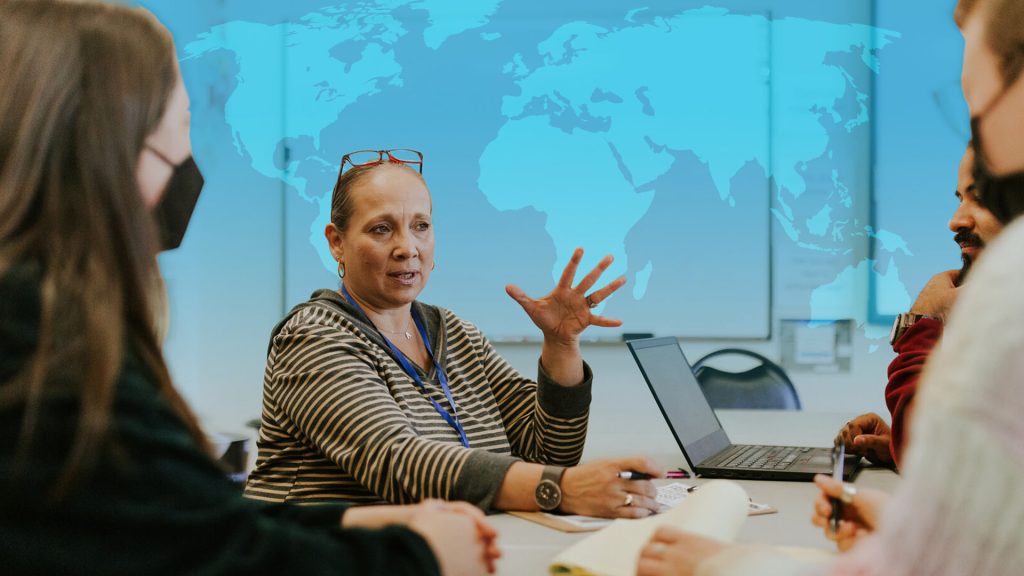Posts Tagged ‘Refugees and Immigrants Blog’
Time is running out for many Ukrainians living in limbo in the U.S.
by Michael Kovbanyuk //
“In June, Russia launched its missiles at Ukraine in two separate pre-dawn attacks leaving 23 dead and many more injured. While the war in Ukraine may be fading in the minds of Americans, these recent attacks serve as a painful reminder that countless Ukrainians still live in fear for their lives every day.
Since the war began in 2022, more than 118,000 Ukrainians have found safe refuge in the United States under Uniting for Ukraine. This program, established by the U.S. government last year, grants Ukrainians seeking refuge temporary parole status in the U.S. for two years. However, it leaves vulnerable people in need of refuge in limbo while they wait to learn their fate regarding permanent residency. …” Read the full piece at the Greensboro News & Record
Grounded in God’s Vision: Q&A with Aerlande Wontamo
In January 2023, we welcomed Aerlande Wontamo as World Relief’s new Senior Vice President of U.S. Programs. She recently sat down with us to share how her professional expertise, personal experience and strong sense of calling have uniquely prepared her for this role.
We hope you enjoy hearing from Aerlande as much as we did!
Can you start by telling us a little about yourself and your story?
I’m originally from Ethiopia but grew up in Nairobi, Kenya. Due to a political crisis, my father went to Kenya as a refugee. A little over two years later, my two siblings, mother and I followed. The separation at a young age and understanding what that meant for my mother as the sole breadwinner who was managing three young kids made a profound impact on me.
In Nairobi, my parents had other refugees over for lunch and dinner every Sunday after church. It wasn’t so much that they needed a meal, but that they needed to not think about being a refugee for one afternoon. The integral role of the church and the impact those interactions have on people was something I deeply understood and drew me to World Relief.
You have almost 15 years of experience in refugee resettlement. What have you learned along the way?
We set people up well when we walk alongside them in intentional community and provide wraparound services. However, one of the biggest red flags I’ve seen over the years is the mentality of saviorism. It’s crucial to acknowledge that while refugees may carry the label “refugee,” it doesn’t encompass their entire identity. They bring a multitude of skills and experiences, and our lives are often enriched through our interactions with them.
What do you think sets World Relief apart?
At World Relief, we look at what we do not just as good work, but as a space we are called to be in as Jesus would be. Grounding ourselves in our biblical mission helps us understand that we’re part of God’s big picture and vision.
An important question I like to ask is, “Where does your joy come from, or what grounds you?” If it is in accomplishments like getting a grant or opening an office, that’s very fleeting. I find deep joy in being called to this work because it is truly a privilege to be part of God’s work.
We talk a lot about building welcoming communities. Why is that important?
That’s really a personal value for me — as a human, I need community to thrive. But community is not birthed out of just being in a space. There’s an intentional, relational investment.
I think about a client I had who was a single mother with three kids under seven. We matched her with two volunteers who, every Saturday, would take her kids to dance class because they had so much energy. But once their six months of volunteering ended, they continued to meet with her and became family, not because they needed to do things to help her be successful, but because they extended friendship to her and her daughters.
World Relief has been resettling refugees and serving immigrants since the 1970s, but you’re the first SVP of U.S. Programs who has lived experience as a refugee. How does that shape the way you lead?
I have grown up in this system in terms of both a lived experience and a professional career, and this is deeply embedded in my DNA. Growing up in a church filled with a transient refugee community informs who I am and how I hold space.
I’m a huge believer in diversity and all aspects of it. I think about women’s representation, people of color, immigrant voices, people with lived experiences. There are so many categories that we can pull from, but we must come from the mindset of, “this allows us to build a greater group,” versus thinking, “now I have to check off this item.” As an organization, it takes boldness to move in that direction, and there’s so much value that can come out of it.
Where do you see World Relief’s U.S. programs headed in the next year?
I always say, “If not us, then who?” Programmatically we have resettled about 9.3% of the refugees arriving in the U.S. every year. If 125,000 refugees come in this year, we are looking at resettling around 13,000. Growth is integral — we must look at investing in new ways of supporting churches and communities who want to walk alongside refugees and other immigrants and in building more sustainable models that set up our offices to be successful.
Now to end on a fun one — do you have any hidden talents?
That’s the hardest question of all! I enjoy a good baking challenge. Recently, I made French macarons, not sure if it’s a talent yet — but maybe one day!
Want to learn more about how World Relief’s U.S. Programs are creating change in the lives of refugees, other immigrants and the communities that welcome them around the country?
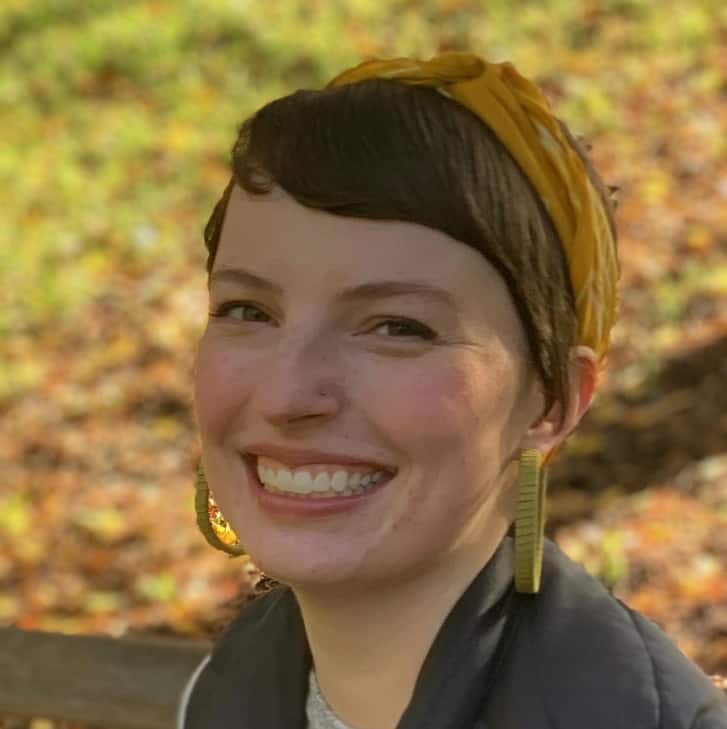
Meghan Gallagher is a Seattle-based freelance content writer and strategist. She has a B.S. in Marketing Management and a background in digital marketing for healthcare, nonprofit, and higher education organizations. When she’s not writing, you can find her working as a local bookseller and enjoying all the Seattle area has to offer.
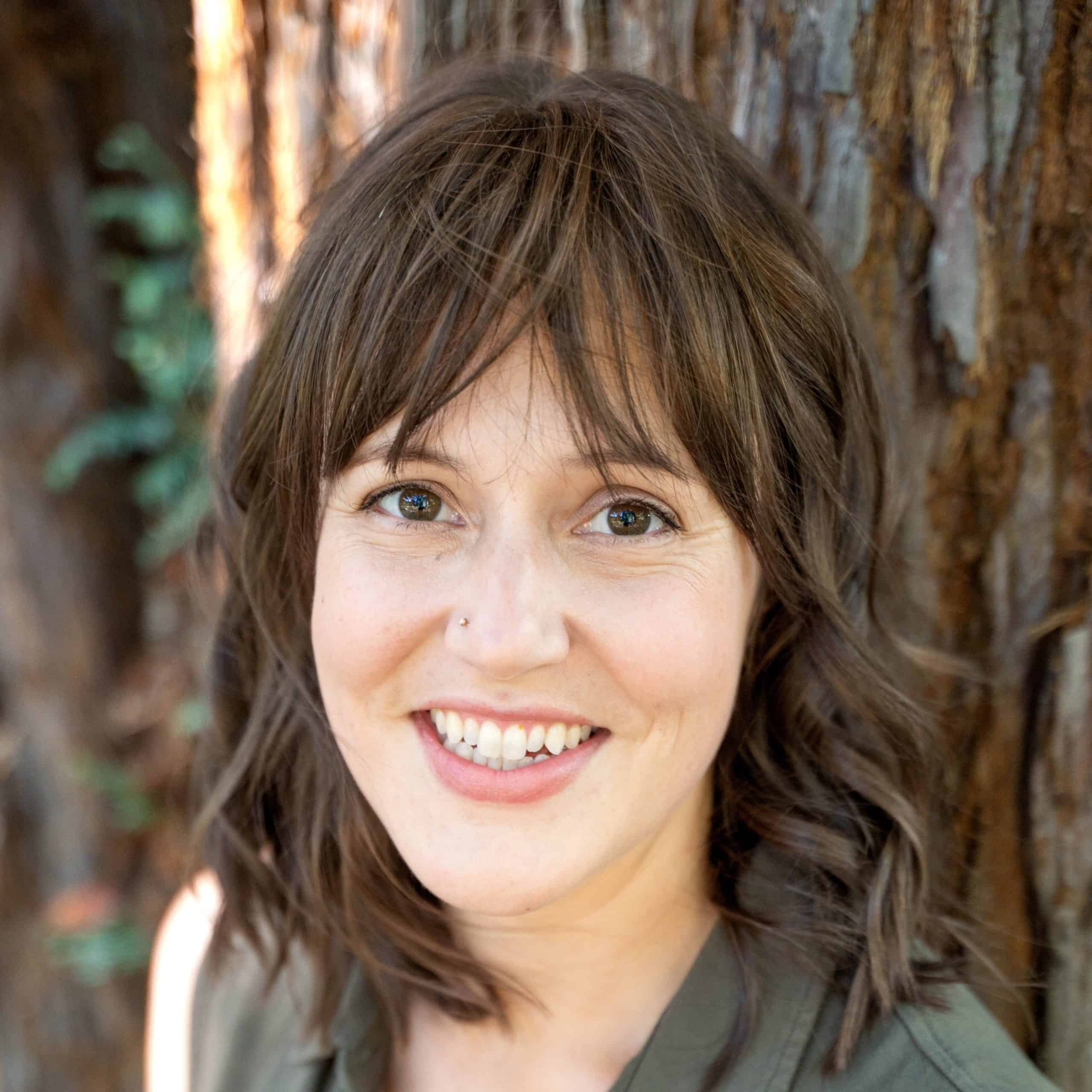
Kelly Hill is the Senior Content Writer at World Relief. She previously served as Volunteer Services Manager at World Relief Triad in North Carolina. With a background in International and Intercultural Communication, she is passionate about the power of story to connect people of diverse experiences.
Refugee Stories: Meet Malian
There’s someone we’d like you to meet. At just 16, Malian was forced to flee his home in Burma. For the next 15 years, he and his young family waited for a place where they could rebuild their lives. This is his refugee story.
Every June, we invite people like you to celebrate World Refugee Day — a day that honors the strength, courage and refugee stories of people like Malian. Will you help ensure more families like his can find a safe place to call home?
A Prayer for Refugees
Every June, we at World Relief invite people like you to join us in honoring World Refugee Day. And we believe one important way we can walk alongside our refugee neighbors is through prayer.
Prayer is a source of power and light in dark times. As we face the largest displacement crisis in recorded history with over 108 million displaced people and 35.3 million refugees worldwide, prayer is an essential part of our response.
For me, prayer has been integral to my growth as a Christian. It has given clarity to big life decisions, healing to sicknesses and physical pain and it has been a practice of vulnerability and unity within Christian community. Prayer is the simplest act of being and communicating with God our Father.
Will you join me today in his presence as we pray for refugees together?
Father, I still my heart and mind to focus on you. Speak, your child is listening.
(Pause in silence and prayer)
Read: “The Lord your God is supreme over all gods and over all powers. He is great and mighty, and he is to be obeyed. He does not show partiality, and he does not accept bribes. He makes sure that orphans and widows are treated fairly; he loves the foreigners who live with our people, and gives them food and clothes. So then, show love for those foreigners, because you were once foreigners in Egypt.” — Deuteronomy 10: 17-19 (GNT)
How wonderful and powerful you are, Lord. Help me to reflect you and love like you.
(Pause in silence and prayer)
Today, I pray for those who are vulnerable and who may not be able to see your might and presence in their lives at this moment. I pray for those fleeing violence, wars and persecution; be their guide and comfort. For the millions of refugees around the world, waiting for justice and a new home.
(Pause in silence and prayer)
I pray for my city and community. May it be a place of safety, support and solace for those in distress.
(Pause in silence and prayer)
Lord, I think about our nation’s leaders and government. May they use their positions of power to work towards justice and righteousness.
(Pause in silence and prayer)
I pray for your church, that it would be a city on a hill, shining bright as a beacon for all who seek a new and better way.
(Pause in silence and prayer)
Lastly, I stand firm, covered with the armor of God, and pray against the work of the enemy, who comes to kill, steal and destroy.
(Pause in silence and prayer)
I offer this prayer to you and declare that yours is the kingdom and the power and the glory forever. Amen.
Want to learn more about refugees and how you can celebrate their lives and stories this World Refugee Day?
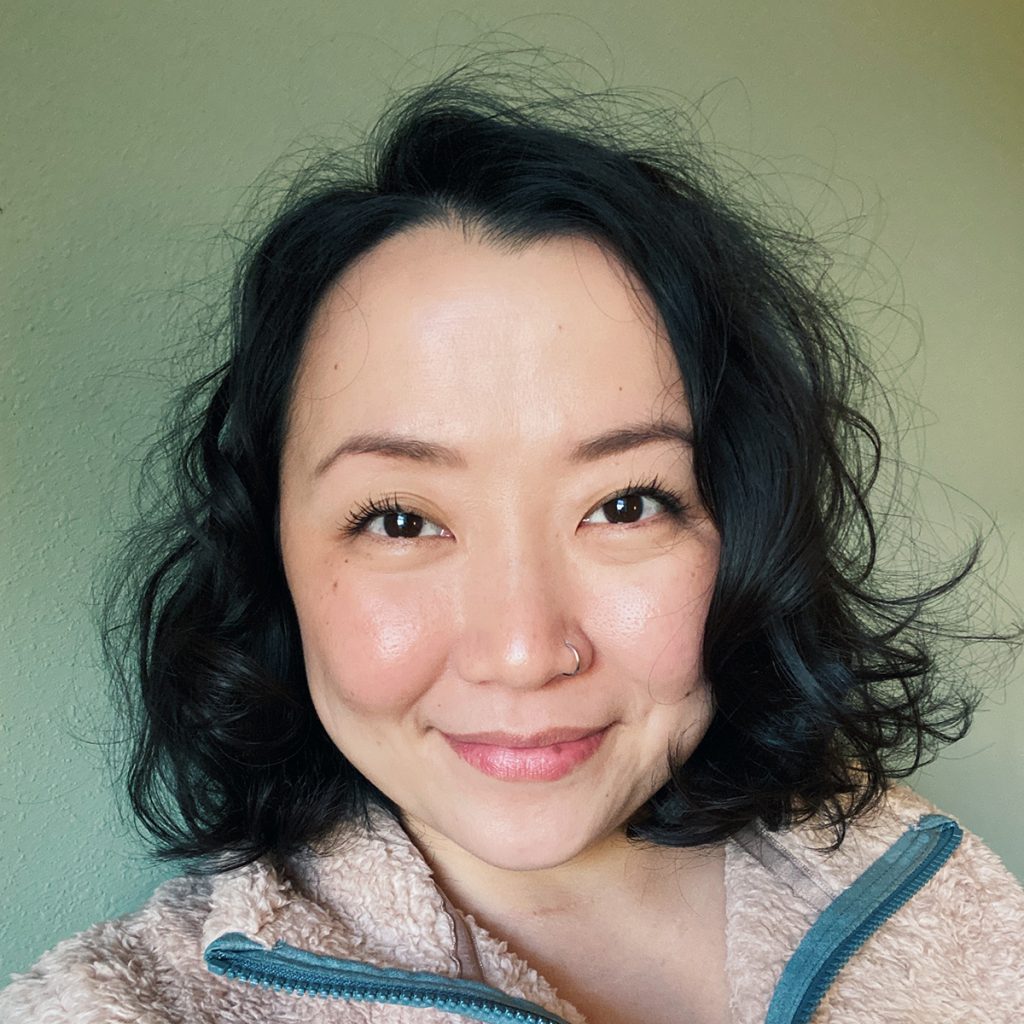
Nou Huse works at World Relief as the U.S. Good Neighbor Team (GNT) Program Coordinator. She formerly served as the Volunteer and GNT Coordinator at World Relief Fox Valley. Before joining the World Relief team, she lived seven years abroad working in education and serving in urban missions. She aims to act justly, love mercy and walk humbly with God in all things.
Social Emotional Learning Equips Refugee Children and Their Families to Thrive
At World Relief, we are committed to advocating for refugees the opportunity to legally seek refuge in the United States. But our work doesn’t end there. We know that serving the refugee community requires caring for the whole person and their families.
As part of our bold vision to move Forward Together, we are determined to Go Deeper in our care for our refugee and other immigrant neighbors by addressing root causes of vulnerability and expanding our expertise in mental health.
Carrie Woodward, Foundations Partnerships Manager for World Relief Chicagoland, breaks down one of the trauma-informed mental health strategies: Social Emotional Learning.
At just four years old, Sam arrived in the United States with his family. Upon arrival, they were welcomed by World Relief Chicagoland. Like other refugees, the family arrived with hope and dreams for their future. the chance to rebuild in the United States did not erase the impact left by tragedy and trauma — even for a young child like Sam.
Refugee children carry their complex emotions and traumatic histories with them. This can make getting to a place of stability and happiness very challenging.
Even after coming to the U.S. Sam’s body and mind were marked by the trauma of his past, and he struggled to adjust. He had a lot of emotions that he did not understand or know how to express – so he lashed out in frustration. This left his parents feeling exhausted and overwhelmed, unsure of what to do. His mother told World Relief, “I feel helpless.”
The Challenges Refugee Children and Youth Face
For children, whose brains are still developing, the resettlement experience itself can be retraumatizing as they encounter language barriers, difficulty navigating community resources, lack of relational support and culture shock. Many refugees come from cultures where discussing mental health is taboo. This often means that busy parents like Sam’s who are processing their own trauma may not know how to support their children in recovering too.
Thankfully, with the help of community partners and volunteers, World Relief Chicagoland is equipping parents and children to grow and thrive through Social Emotional Learning (SEL).
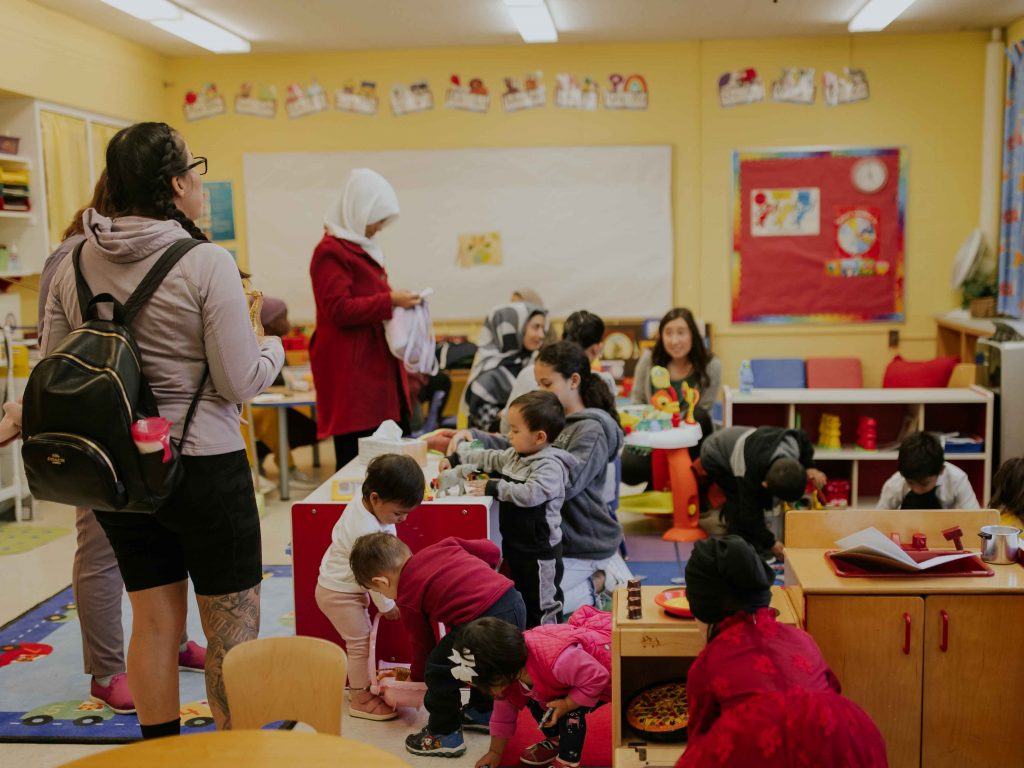
How Social Emotional Learning Changes Children’s Lives
Refugee children have often experienced chronic stress for months or even years at a time. Their stories are often marked with violence, poverty, death of loved ones and displacement. These factors create complex thoughts and feelings that can feel scary to explore. Yet, processing these emotions is key to moving forward.
Social Emotional Learning helps children process by focusing on five areas that impact every aspect of life: self-awareness, self-management, responsible decision-making, relationship skills, and social awareness.
Each of these areas impacts a child’s self-confidence, relationships and ability to cope with daily stressors. Research has shown that when compared to students who did not participate in SEL, those who engaged with SEL activities:
- Had better grades
- Showed more skills for managing anxiety and depression
- Behaved better in a classroom setting
- Expressed better attitudes towards themselves and others
These impacts have long-term, positive effects. One analysis showed that students who participated in SEL programs gained social emotional skills that led to higher levels of well-being 18 years later.
What Does SEL Look Like At World Relief?
World Relief Chicagoland incorporates SEL into age-appropriate activities such as:
- 10-minute guided check-ins to identify and reflect on how their bodies are feeling
- Writing, drawing, or speaking “I am” statements. Saying affirmations like “I am good at basketball!” or “I am a great big sister!” can build self-confidence
- Using a chart of expressive emojis to help preschoolers identify and describe feelings
- Coloring pictures in response to prompts like “Show us your family” or “Show your home
SEL is part of a holistic approach to mental health that addresses the specific emotional needs of immigrant and refugee youth.
“Equipping refugee children with the tools and treatment they need to adapt and grow through trauma forges a pathway for them to embrace emotion and learn how to process it in a way that feels safe and organic to their developmental level,” said Katie Schnizlein, Early Childhood Program Coordinator at World Relief Chicagoland. “This breaks down the barriers of layered emotion and devastating trauma…as they grow into the rest of life.”
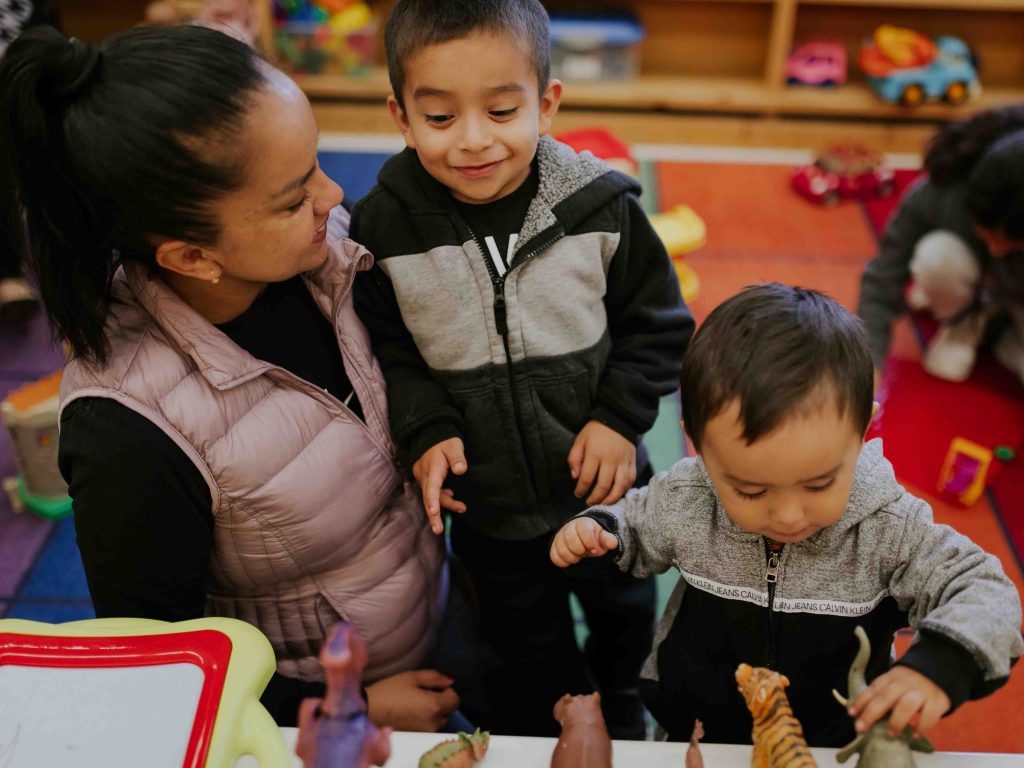
Preparing Children for Life
Ultimately, Katie says, “SEL ensures that children have services that cover mind, body and soul. Through SEL, children have the ability to grow in agency, autonomy, self-awareness, emotional regulation and the art of fitting into the world around them.”
In Sam’s case, SEL is part of the answer to the pain and the helplessness his parents felt.
Shortly after they arrived, Sam started attending a preschool and participating in World Relief’s Children & Youth program. He gained structure and relational support through his tutor and SEL activities, while his mother joined a World Relief-facilitated parenting group where she learned strategies to support her son socially and emotionally.
Thanks to this support system, now at five years old, Sam plays well with friends, is learning quickly in school and is working on naming and describing his emotions.
Read more about how we are going further and deeper to create lasting change and helping families thrive. Follow us on Facebook, Instagram or LinkedIn.

Carrie Woodward joined World Relief in 2021 in a role that engages foundation and business partners throughout the Chicago area. She studied community development and history at Covenant College. This education still informs her passion for asking questions and desire to find evidence-based ways to help communities flourish. Prior to coming to World Relief, Carrie worked for an international development organization and an academic research lab in Arizona. She is an avid reader, podcast-listener, and explorer of Chicago’s many unique neighborhoods. You can often find her playing pickleball or walking by Lake Michigan.
Was Jesus a Refugee?
“Jesus Was a Refugee.” Recently, I’ve seen that message all over — on billboards, TV ads, on t-shirts, debated on social media and beyond. Much of this messaging is part of a broader campaign called He Gets Us that aims to help people recognize that Jesus was a human being who can identify with us in our humanity.
That’s a powerful reality for the more than 32 million refugees in our world today, a number unprecedented in recorded history. Jesus “gets” them because, early in his human experience, the Gospel of Matthew tells us that he was forced to flee the threat of Herod’s persecution. He was carried by Joseph and Mary to Egypt, beyond Herod’s dominion, where they would be safe from the genocide inflicted by a jealous ruler on the little boys of Bethlehem.
Many of today’s 32 million refugees know viscerally what it means to awaken in the middle of the night and to flee with what little they could carry, as an angel instructed Joseph to do. To feel danger just behind them. To complete a grueling journey only to arrive in a new land and a new culture with the ongoing grief of the loss of one’s homeland. Jesus presumably lived all of that in his fully human flesh as a small child. And millions today find solace in that reality. He gets them.
But was Jesus really a refugee?
We now have formal legal definitions for the term “refugee” in both U.S. and international law: refugees are those outside of their countries of origin who are unable or unwilling to return because of a well-founded fear of persecution on account of their race, religion, political opinion, nationality or membership in a particular social group. But, of course, these definitions did not exist when the holy family made their journey.
Some, especially on social media, have vehemently insisted that Jesus was not a refugee — perhaps defensive at the implication that their preferred refugee and immigration policies to keep most, if not all, refugees out might actually have harmed the incarnate God.
But while it is clear from the biblical text that Jesus was displaced by a credible threat of persecution, it’s fair to ask just how he would fare under our contemporary policies — as theologian Glenn Butner Jr. does in a new book, Jesus the Refugee: Ancient Injustice and Modern Solidarity.
Butner argues that Jesus largely satisfies the contemporary legal definition of a refugee, but it’s debatable whether the journey to Egypt took him “outside of his country of origin,” since Egypt and Bethlehem were both part of the Roman Empire. Perhaps it’s more precise to characterize the holy family as “Internally Displaced Persons” — those, including more than 60 million people in our world today, who have been forced to flee their homes but remain within the boundaries of their countries.
Would Jesus have faced the barriers many families fleeing persecution face today?
Perhaps Jesus was actually an asylum seeker: asylum seekers profess to meet the definition of a refugee. They say that they’re afraid of persecution on account of one of the enumerated grounds — but they’re not ensured protection under the law unless and until they have demonstrated (to the satisfaction of the governing authorities of the country where they hope to find refuge) that they indeed qualify. Sometimes they lack documentary evidence of the credibility of their fear. Would Joseph have cited an angelic message as his evidence that persecution was likely for little boys in Bethlehem? Would that have satisfied an Egyptian immigration judge?
Fortunately for our Lord and Savior and his earthly parents, there’s no evidence in the biblical text that they faced any barriers to finding refuge in Egypt. But the Gospel of Matthew gives us very few details about their experience there. We’re left to speculate: were they welcomed, seen as a potential threat or simply ignored? Did Jesus learn to speak his first words with a different accent than his parents? Did Joseph easily find work, or was he told that he would be “stealing” a job from an Egyptian carpenter?
Decades later, in one of his final sermons before his crucifixion, Jesus commends certain individuals for having welcomed him when he was a stranger. The disciples are confused: “When did we see you a stranger and invite you in, or needing clothes and clothe you?” (Matthew 25:38). They did so, Jesus says, when they welcomed one of “the least of these brothers and sisters of mine” (Matthew 25:40). Jesus identifies himself perpetually with the vulnerable and the stranger — which, at least early in his life, he himself was.
Does Jesus’ story shape how we respond to refugees and other immigrants?
Whether Jesus would satisfy the precise legal definition of a refugee or not, what’s clear for those of us who profess to follow him today is that an unprecedented crisis of forced migration — with more than 100 million people forced from their homes, experiencing displacement similar to what Jesus experienced as a child — presents an unprecedented opportunity to demonstrate love for Jesus himself.
At World Relief, it’s our great privilege to partner with local churches both across the United States and in various other parts of the world to welcome and care for refugees and others who have been displaced. From our U.S. refugee resettlement program’s foundations in the 1970s, we — and the tens of thousands of church-based volunteers who have partnered with us — have resettled more than 300,000 individuals, motivated by Jesus’ challenging words in Matthew 25. As Evelyn Mangham, the cofounder of World Relief’s refugee resettlement program said, the Christian response to an unprecedented global refugee crisis is “simple”:
“Respond to what Jesus said, that’s all: ‘I was hungry, and you gave me something to eat. I was thirsty and you gave me something to drink. I was a stranger’ — refugee — ‘and you took me in… Inasmuch as you did unto of the least of these my brethren, you did unto me.’ It’s simple obedience.”
Are you ready to create a more welcoming and just world for refugees and other vulnerable immigrants? Learn how you can join us today.

Myal Greene has a deep desire to see churches worldwide equipped, empowered, and engaged in meeting the needs of vulnerable families in their communities. In 2021, he became President and CEO after serving for fourteen years with the organization. While living in Rwanda for eight years, he developed World Relief’s innovative church-based programming model that is currently used in nine countries. He also spent six years in leadership roles within the international programs division. He has previous experience working with the U.S. Government. He holds B.S. in Finance from Lehigh University and an M.A. from Fuller Theological Seminary in Global Leadership. He and his wife Sharon and have three children.
Churches in Washington are Using Coffee to Change the Lives of Refugees and Immigrants
If you’ve been to Western Washington, you know that coffee is a big deal. Seattle consistently ranks near the top of “best coffee cities in America.” One analysis even found there are 56 coffee shops for every 100,000 people.
Coffee is such a big deal, in fact, that many local churches have fully outfitted coffee shops to meet the caffeine needs of Sunday morning guests. But what if those coffee shops could serve an even bigger purpose — what if they could help welcome refugees and immigrants?
That’s the question Holly Andrews asked herself when she moved to Washington in 2011.
The Seed of an Idea
Holly’s interest in welcoming refugees and immigrants started when she tutored a Somali family in college through World Relief. “It was such a great adventure getting to know [the family’s] culture and language, sharing food together and growing in a trusting relationship,” Holly said.
Inspired by this family’s story and a growing awareness of her refugee and immigrant neighbors, Holly went on to become a teacher for English language learners, eventually completing her masters in linguistics.
Later, while working at Bethel University in Minnesota, she led a study-abroad course in Cambodia where the seed of an idea was planted.
One of the agencies she and her students visited ran a cafe where they provided job training for women survivors of trafficking. “I loved that [the program] gave women a chance to work with dignity and demonstrated the grace of God by meeting them where they were at,” Holly said.
She felt so moved that she even hoped to return to Cambodia to help with the cafe program. But, “God had different plans.”
Barista Training for Newcomers
Shortly after returning from Cambodia, Holly and her husband moved to Washington, and Holly began working at World Relief. She also started attending Calvary Chapel South in Kent. The church had a coffee shop, which reminded her of her time in Cambodia.
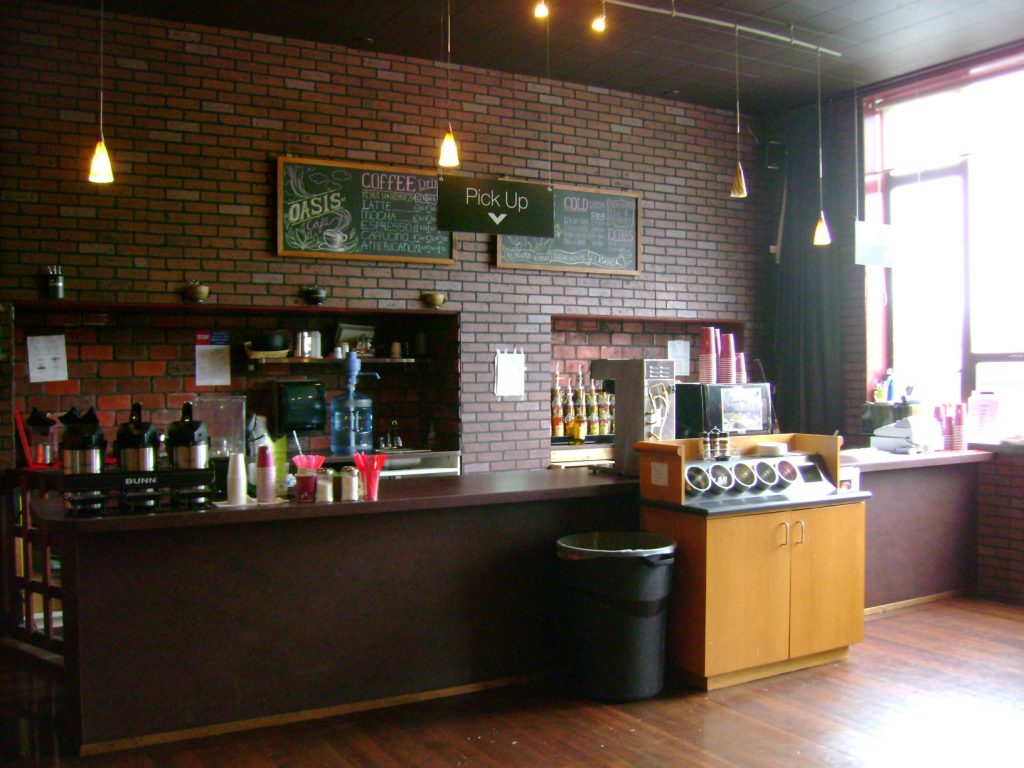
“I thought, wow, this would be a really neat opportunity to partner together — the church and World Relief — and provide some practical training [to refugees].”
Within a year, Holly helped Calvary Chapel South launch a barista training program for newly arrived refugees and immigrants. Since then, Holly has also launched the training program at Brooklake Church in Federal Way, where she now works as the Outreach Director.
Both churches partner with World Relief Western Washington’s Employment Services to identify and refer participants to the programs. So far, the two churches have trained more than 25 refugees.
More Than a Training Program
Much like the Cambodian cafe that first inspired Holly, the barista program in Washington is designed to meet each participant’s individual needs. Focusing on only a few students at a time, training sessions are tailored based on the trainee’s prior work experience and English level.
Participants are enrolled in a 12-week program that takes place every Sunday while church coffee shops are up and running. Each week, participants focus on learning how to run one aspect of the coffee shop, while also practicing their English and customer service skills.
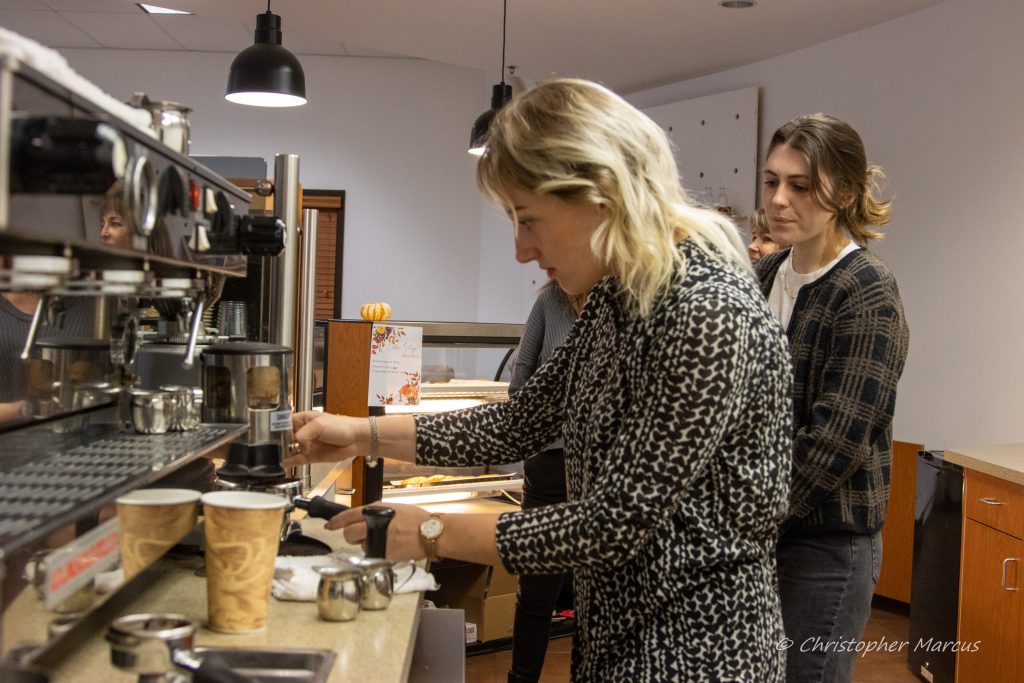
But there’s more to the program than barista skills and English — there’s an opportunity to form friendships. Tutors intentionally leave space for navigating culture and offering encouragement, advice and even prayer when appropriate.
“The churches don’t just help our participants learn new skills,” said Santa Pradhan, Employment Program Manager at World Relief Western Washington. “They also welcome them with open arms and give them a sense of community.”
As tutors help trainees feel like “less of a stranger,” trainees help tutors expand their understanding of refugees and immigrants and clarify misperceptions. “Our participants have been instrumental in helping the church to be better at following God’s call for us to welcome the stranger,” Holly said.
As participants and volunteers become invested in one another’s lives, many form friendships that last long beyond the end of the program.
Careers Beyond Coffee
This was the case for Hawraa. After resettling in the U.S. from Iraq, she joined the barista training program in early 2016. Today, Hawraa remains friends with Holly and the volunteers from Calvary Chapel South’s coffee shop training, and she credits the program with teaching her more than barista skills. She also learned customer service and how to interact with others in a U.S. workplace, lessons that would carry her career beyond the coffee shop.
“[The barista program] was the first thing that I participated in that was close to a job when I first came to the United States. It prepared me for bigger things that I went on to do,” she said.
Hawraa is now working as a case manager with Puget Sound Training Center, helping other refugees, immigrants and under-served populations achieve career success in the U.S.
When asked what advice she would give to U.S. churches hoping to welcome refugees and immigrants, she said, “Please offer them participation in programs and events, help them as much as possible with their English since most are too embarrassed to make mistakes, and just smile! Seeing smiling, welcoming faces was one of the best things when coming to the United States.”
Why the Church?
Like World Relief, Holly believes the church is called to embody the hope of Jesus in the midst of a hurting world. One of the ways churches in the U.S. can do that is by welcoming new immigrants into their communities and seeking to learn from one another.
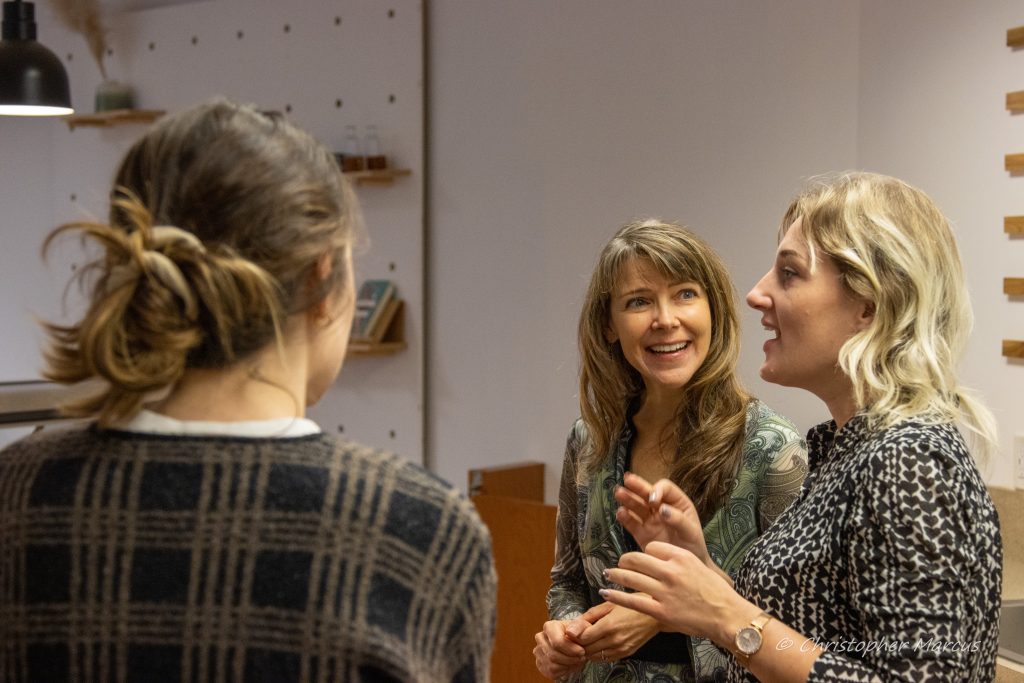
“We see in the establishment of the early church, God’s design… is for people to come together, pour over his Word and to fellowship with one another in a deep and devoted way,” she said. “How amazing when the local church can enfold newcomers into this kind of community.”
For churches not yet connected with refugees and immigrants, Holly suggests first discovering who is already providing services for refugees and immigrants, including established immigrant communities. Work together to determine how best to be a supportive partner in the resettlement process.
She also recommends taking note of what your church already has that might help in welcoming someone who has recently arrived in the U.S.
While not every church has a full coffee shop, others may have shuttles available to provide transportation to local thrift stores or markets, or business owners from local churches might host a small job fair. English tutoring, access to computers, job search assistance and fun after-school activities can also make a big impact.
But most importantly, Holly emphasizes the value of friendship as we seek to create more welcoming communities where everyone can thrive.
“The church can first and foremost be a friend,” she said. “Rest from ‘doing’ and leave room for just being together, sharing life and learning from one another. Be hospitable and accept hospitality. This is a ministry in itself.”
Want to be a part of creating lasting change for refugees, immigrants and people experiencing vulnerability around the world? Learn how we’re moving forward together.
If your church is ready to dive deeper into how best to love and welcome your refugee and immigrant neighbors, check out The Workshop, World Relief’s e-learning platform. Use code CHURCH25 for 25% off through January 31, 2023.

Kelly Hill serves as a Content Writer at World Relief and previously served as Volunteer Services Manager at World Relief Triad in North Carolina. With a background in International and Intercultural Communication, she is passionate about the power of story to connect people of diverse experiences.
Breaking Down Barriers: How Autism Has Helped Me Serve My Refugee Neighbors
I’ve lived in the same place my whole life. I have never had to leave everything I know out of fear for my life. In many ways, my life and the lives of my refugee and immigrant neighbors couldn’t be more different.
Yet, I do know what it feels like to be on the outside looking in. For as long as I can remember, I have felt somewhat out of place, like I wasn’t meant for this world in some way. I didn’t know the reason for this — it was just the way I was.
It wasn’t until I was 20 years old that I finally realized why I felt so out of place. That’s when I first heard, “You have autism.”
On one hand, I was relieved. I finally had an answer for why I felt like a person who was told to play the game without being given the rules. On the other hand, it expanded my understanding of just how much our society is not built to accommodate people like me.
Fighting the battles that come along with having autism has been difficult, but it’s also afforded me a unique love for learning from those whom society often relegates to the margins. Over the years, this has meant seeking to be mentored by African American pastors, working with the imprisoned and searching out opportunities to see how my Christian faith intersects with building up my local community.
In college, I was introduced to this type of ministry when I had the opportunity to work with refugees as an ESL tutor. For me, this felt like a natural extension of my passion for reflecting God’s love to those on the margins. Years later, through God’s providence, I was given the opportunity to continue serving refugees when I joined the World Relief Upstate SC team right here in my own community in South Carolina.
Now, in my role as the Upstate SC Mobilization and Development Coordinator (and formerly as the Church and Volunteer Engagement Coordinator), my life is full of paradoxes. I am a person who struggles with social interactions, but I must frequently speak to volunteers, churches and other community partners about how we are called to love and serve refugees. Accepting unpredictability and ambiguity does not come naturally to me, yet refugee resettlement is anything but predictable.
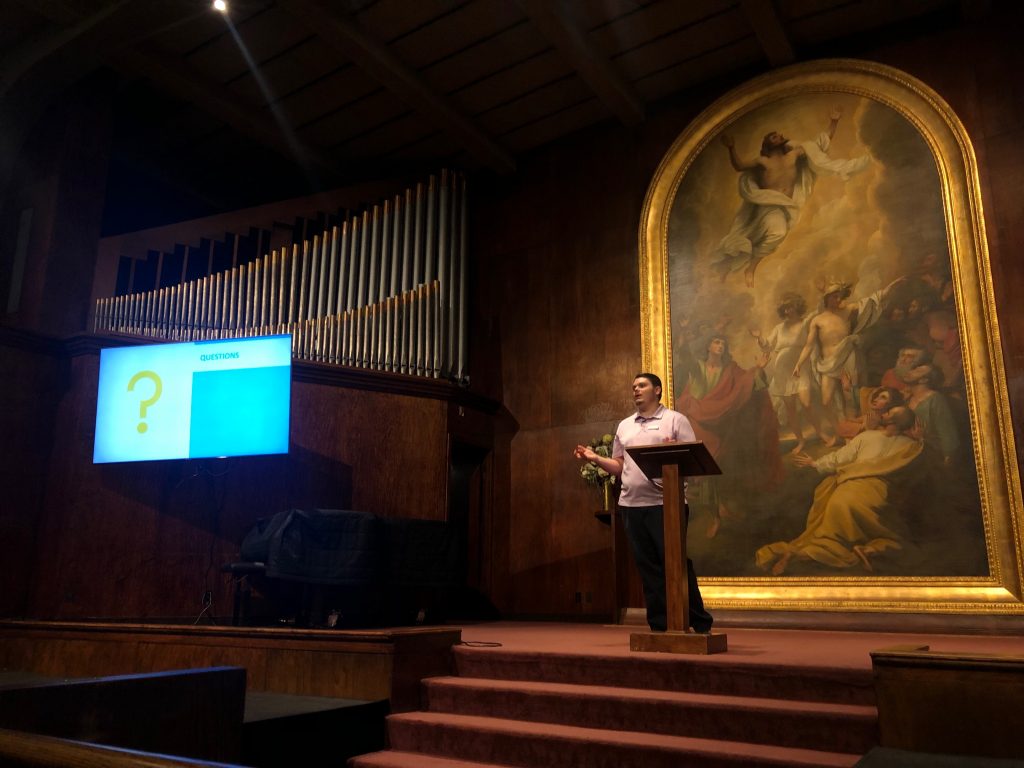
While these are paradoxes, they show that God uses every single person to advance his cause and that his kingdom breaks down barriers of gender, race, ethnicity and even disability. In fact, because of my disability, I believe it can sometimes be easier for me to put myself in the shoes of refugees and immigrants who are feeling out of place and lost in a culture and society that wasn’t built for them.
For many refugees and immigrants, navigating new communities, grocery stores, school systems, workplaces and more can feel like trying to put a puzzle together without knowing what the finished product should look like. That’s a feeling I can certainly relate to.
My experience with autism spectrum disorder also gives me compassion for the fear and uncertainty that many of our refugee and immigrant neighbors face in their daily lives. I understand what it means to cling to Matthew 6:34, which says “do not worry about tomorrow, because tomorrow will worry about itself.”
While I do not discount the many challenges people like me face or the differences between my experience and that of refugees, I do believe wholeheartedly that the good news of God transforms even the most difficult of situations for our good and his glory.
At World Relief, I’ve found a place where I can work within my strengths and limitations as someone who has autism and experience God’s transformation in my life and in the lives of those around me.
World Relief is committed to building welcoming communities that value and accept refugees and immigrants. That same culture has helped me feel valued and accepted. Our Office Director, Brandon Baughn, has been an especially faithful example of this culture of welcome, giving me the blessing of trust in my work and in my perspective not only as someone with autism, but more importantly, as a follower of Christ who is passionate about serving “the least of these.”
This trust has allowed me to run headlong into serving churches and volunteers so that they, too, can create communities of welcome. I am able to do my work knowing that World Relief welcomes my unique perspective and does not see my disability as a hindrance.
Together, we are moving towards creating spaces where people of all nations, backgrounds and abilities can embrace their God-given purpose and live out their full potential.
At World Relief, we are grateful for faithful staff like Austin. We rely on the time, talents and treasure of people like you to continue moving forward together. You can join us by giving today or by checking out our careers page to see if working at World Relief is a good fit for you.

Austin Donahoo is the Mobilization Development Coordinator at World Relief Upstate SC, where he previously served as the Church and Volunteer Engagement Coordinator. He loves integrating his passions for Christian ministry and theology with community engagement, believing that the call of the gospel is to be shown in both word and deed. At World Relief, he works to do this by equipping churches and volunteers to love their refugee and immigrant neighbors.
Worth the Wait: A Story of Faith, Perseverance and Love, Despite the Odds
For seven years, Congolese refugees (and newlyweds!), Mbimbi and Goreth, didn’t know if they would ever see each other again. Separated by continents, Mbimbi was stuck in Burundi while Goreth resettled and began her new life in America. In spite of the long wait, the two of them never lost hope, their love growing by the day.
“No one can do what Goreth did,” Mbimbi said about his wife’s commitment not to remarry. Instead, Goreth chose to hold onto hope, believing God was faithful and would bring Mbimbi back to her in America.
Where It All Began
In 2008, Goreth was a wife and mother living in Goma, a city in Democratic Republic of Congo (DRC). Her day began like any other day – she woke up, brushed her teeth, made some tea and headed to the market to sell clothes at her stand. It became a day she would never forget when “the fighting broke out.” She recalls, “My daughters, [Christine and Valentine], and I started running, and we found a way to get past Goma to Burundi. That’s when I started my life as a refugee. My [first] husband died in the fights.”
Goreth and her daughters ended up in a Burundian town filled with other refugees. Upon arrival she shares, “I felt relief because of sleeping in a house and churches help us and Christians help us.”
While Goreth and her daughters were refugees in Burundi, Mbimbi was working as an auto mechanic in Baraka, a city south of Goma in DRC.
In 2014, an armed civilian group put pressure on him to “join them for the fight and to be a soldier.” These groups were once formed to defend the Congolese against rebel armies. But tragically, they have created more chaos and violence than protection for the Congolese peoples.
So, when Mbimbi refused, they threatened him. With a target on his back, he reflects, “That was the night my uncle called me and said, ‘They are looking for you.’” That same day, “I told fishermen what happened and ask if they can help me to another place. They hide me in the boat and carry me down river.”
From there, Mbimbi went to Boku, where “they [gave him a] motorcycle to go to Boda.” From Boda, he traveled to Burundi where he ended up in the same town as Goreth.
Having arrived in the same town six years apart, Goreth and Mbimbi met, by chance, while filling out paperwork to earn refugee status. Goreth was farther along in the process while Mbimbi was just beginning his paperwork. Despite crossing paths at different stages in their journey to flee DR Congo, they formed a connection “and began a relationship.” Within a year, they were married.
Oceans Apart
Even though they were living in a safer town than the cities they had fled, Goreth and Mbimbi couldn’t escape the violence. In 2015, their Burundian town experienced fighting; so, when Goreth was given the opportunity to go to America, she agreed. The catch? Mbimbi wouldn’t be able to join her and her daughters. It was a bag of mixed feelings for Goreth.
“To be a refugee is not an easy thing,” she says. “It’s just a thing you have to do to pray to God. God helped me because I became strong and fight for the kids to grow up…in a safer place.”
Leaving behind her new husband, Goreth and her daughters traveled to America not knowing when and if they would ever be reunited with Mbimbi. When they arrived in the U.S., their new lives began right away.
Goreth remembers they were greeted by World Relief staff and volunteers. “[They] had already found an apartment for us,” she recalls.
Staff and volunteers came alongside Goreth and her kids, taking them to doctors appointments and helping Goreth find a job in manufacturing, packing hospital-grade linens. Goreth expresses sincere gratitude for all of World Relief’s help, especially in “the first three to six months.”
Even though Goreth felt “sad sometimes” she shared with deep conviction that she “still waited and prayed to God” for Mbimbi.
At Last, Together Again
Both her and Mbimbi’s prayers were answered when he was resettled to America in July 2022. Finally reunited with his wife, Mbimbi is taking a World Relief “Zoom job class and language class.”
He takes comfort in knowing that once his job and language classes are complete, he can still count on World Relief.
“It’s not like they abandon you,” he said. “If you still need something, they are there to help.”
Mbimbi and Goreth are currently renting a one-bedroom apartment. Now able to dream together, the couple says, “for the future, we are praying to God that we can get our own house.”
Knowing that God has provided for them before, they are trusting, through prayer and perseverance, that anything is possible!
As crises converge, and global conflict forces more people to flee their homes, it takes all of us, to move forward together, to build peace and lasting change. When you give today, you help us build peace in places like DR Congo while also welcoming those like Goreth and Mbimbi who have been forced to flee to the United States.
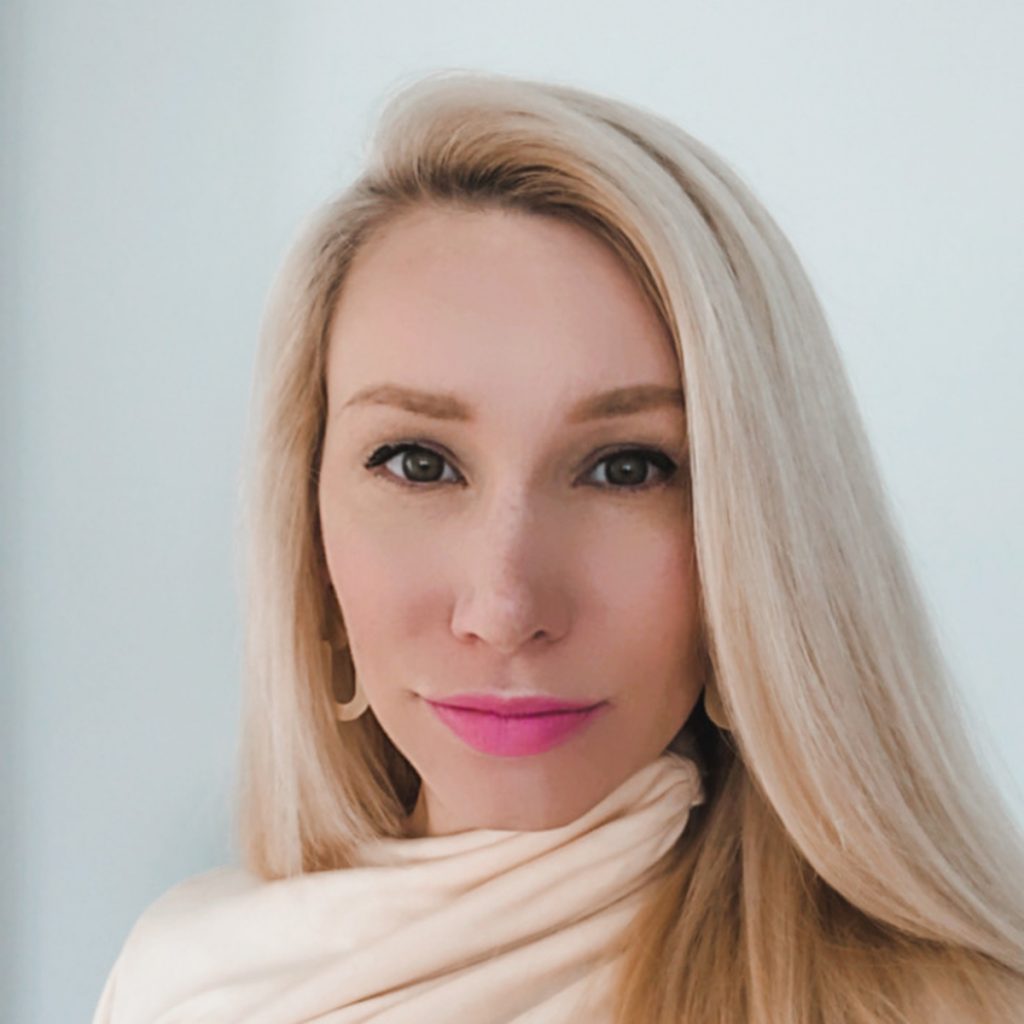
Michelle Visk is a freelance writer passionate about sharing compelling stories of individuals impacted by nonprofits throughout the world. In addition to writing for nonprofits, she recently launched her own interior design e-consulting business, geared at making interior design more accessible to the middle class so everyone can create a home they love. When she’s not writing or doing e-consults, she enjoys spending the majority of her time with her husband and pouring into her two feisty little girls (ages 3.5 and 5) as a stay-at-home-mom. Before becoming a stay-at-home mom, Michelle worked in ministry for 10 years, serving as a Communications Director for a multi-site church. She holds a BS from Butler University.
Private Sponsorship Opens Path for Venezuelans: Here’s What You Need to Know
Currently, Venezuela has the highest crime rate of any country in the world due to a corrupt and oppressive government, unchecked violence, high unemployment and chronic food and medicine shortages. This humanitarian crisis has forced over 7 million Venezuelans to flee their country, making it one of the highest external displacement crises globally.
At World Relief, we know that you care about the most vulnerable and want to compassionately live out Jesus’ call to welcome the stranger with actionable steps.
The Biden Administration has released a new Venezuelan Sponsorship program giving up to 24,000 Venezuelans a chance to start a new life in the U.S. with the support of an American sponsor. The Process for Venezuelans (P4V) is a pathway that will provide safety and refuge in the U.S.
Matthew Soerens, the U.S. Director for Church Mobilization and Advocacy at World Relief shares 6 things you need to know about the new program and how it serves our Venezuelan brothers and sisters.
This blog post speaks specifically to sponsorship opportunities for Venezuelans. If you’re looking for information about Welcome Corp and sponsoring refugees from other parts of the world, check out our other Q&A here.
If you have a friend or family member in Venezuela that you would like to sponsor, learn more and start your sponsorship application below here.
6 Things You Need To Know
1. Why was a new parole program for Venezuelans created?
The goal of a parole program is to allow a limited number of Venezuelans who meet certain criteria and already have sponsors able to help support them within the U.S., the opportunity to be approved for parole in the U.S. before they make the dangerous journey to the U.S. border to seek asylum.
More than 7 million people have fled Venezuela since 2015 due to an ongoing political and economic crisis. The vast majority of these individuals are living in neighboring countries as refugees while many others have come to the United States either on temporary visas or seeking asylum at the U.S.-Mexico border.
In the last few months, the number of Venezuelans who have arrived at the U.S. border has dramatically increased, stretching the U.S. government’s capacity to process asylum requests. Many Venezuelans are likely to win their asylum requests, but the wait time for an asylum decision can stretch on for many years.
In the last fiscal year, approximately 77% of asylum decisions by U.S. immigration judges were to grant asylum, meaning the applicants had demonstrated a credible fear of persecution in Venezuela. But the wait time for an asylum decision can stretch for many years due to the limited capacity of the U.S. government.
Whatsmore, the U.S. government does not recognize the current government Venezuelan administration as a legitimate leader; without formal diplomatic relations, it is very difficult to carry out removal orders for Venezuelans who do not qualify to stay permanently in the United States.
A parole program can speed up the resettlement process and help many Venezuelans avoid the dangerous land journey to the U.S. border, while also easing some of the capacity restraints the U.S. government is facing in processing asylum cases.
2. What does the new program do?
Essentially, the new parole program allows certain Venezuelan nationals who have someone willing to serve as their sponsor within the U.S. to petition on their behalf, so that they can be lawfully brought to the U.S.
It was announced concurrently with new restrictions on Venezuelans who arrive at the U.S.-Mexico border seeking asylum. Most Venezuelans who arrive at the border are now being returned to Mexico.
3. Is this a good policy?
For individuals who can secure a sponsor and have the requisite documents to travel to the United States, this parole program could be a lifeline. We are always encouraged by the expansion of lawful opportunities for those fleeing persecution to find safety in the U.S.
However, we would prefer that the U.S. bring in more Venezuelans not through parole, but with formal refugee status, which would allow them immediate employment authorization, access to resettlement support and a clear process to apply for permanent legal status and eventual citizenship. Parolees are only allowed in on a temporary basis.
We are also deeply concerned by the decision to pair this new parole program with a restriction of due process rights for Venezuelans who reach the U.S. border and wish to request asylum. U.S. law permits anyone facing persecution to seek asylum.
The Biden administration is now returning people to Mexico without being given the opportunity to request asylum under the dubious legal authority of Title 42 — a public health emergency law invoked in light of the COVID-19 pandemic that, nearly three years after the COVID pandemic began, is being misused to restrict access to asylum.
4. If I know someone in Venezuela who wants to come to the U.S., how can I help them?
The process for sponsoring a Venezuelan is operated by United States Citizenship and Immigration Services (USCIS) and explained on their website.
5. I don’t know anyone in Venezuela, but I want to help. What can I do?
Our partners at Welcome.US have a registration form for potential sponsors of Venezuelans. Please note that World Relief does not operate this connection process.
6. What is World Relief doing to help?
While Venezuelans arriving under the new parole program will not have permanent legal status or access to governmentally-funded refugee resettlement benefits, World Relief partners with local churches to meet as many needs as we are able.
Many of our offices provide accredited immigration legal services, which could include helping qualifying individuals apply for Employment Authorization and/or help them understand their options for pursuing long-term legal status.
Some of our offices offer English classes or other support services, which may be available to Venezuelan parolees. We’re also continually advocating for a more robust welcome for Venezuelans and others who have had to flee persecution and hardship in their homelands, including a rebuilt refugee resettlement program that would ensure Venezuelans would arrive.
Want to do more? Take the next step and join The Path. For nearly 80 years, World Relief has been fighting injustice and helping those who need it most. Pathmakers make this work possible, and you can join them.


